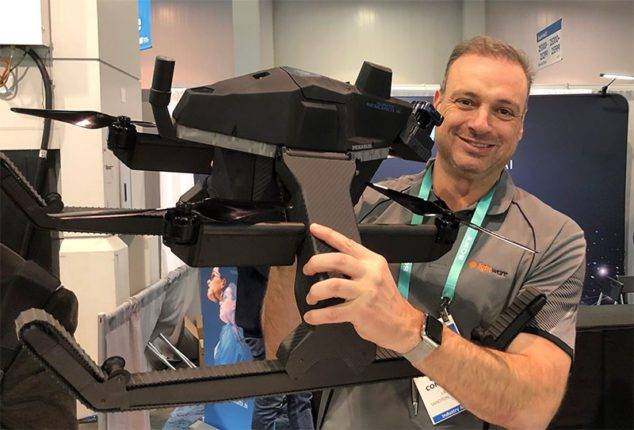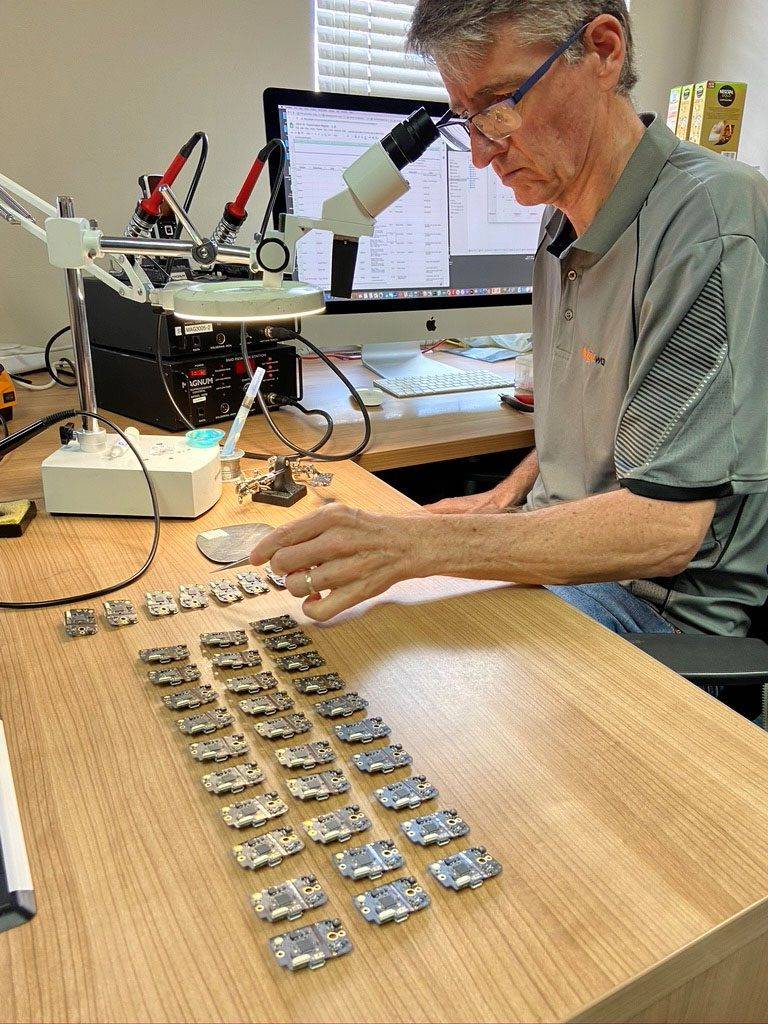The South African Tech Company That Is Building Drones For Amazon And Google

In South Africa, a small company known as LighWare is helping global tech giants like Google and Amazon build drones. The company is making giant strides in the production of the lightest and most compact scanning LiDAR unit used in the manufacture of drones.
LiDAR is a detection system that works on the principle of radar but uses light from a laser. The system measures the distance to a target by illuminating the target with laser light and measuring the reflected light with a sensor.
James Portman, previously the founder and managing director of Laser Measurement – acquired by Swiss tech company, ABB – established LightWare in 2011, operating from Centurion, Gauteng, South Africa.
LightWare is on top of LiDAR technology development and its LiDAR units are used by global tech leaders. As LightWare executive, Philip Constantine, told MyBroadband recently, the “LW45 Sense and Avoid microLiDAR” units were designed to solve challenges faced by certain autonomous vehicles.

Typically, drones are unable to see objects in 3D. Instead, they view the world as lines of code. This essentially renders them blind.
Attempts have been made by many companies to overcome the challenges that result from this 2D view through video and the incorporation of machine learning for obstacle detection.
“Inevitably, this raises new complexities. For example, recording video and taking pictures are a deplorable intrusion of privacy and massive amounts of processing power are required to process video in real-time,” said Constantine.
The LightWare LW45 works differently. It captures 3D objects (not images) and the data is then processed onboard the microLiDAR device.
This upgraded performance means that no further processing is required and it also eliminates any privacy issues associated with off-device video processing.
LightWare’s technology also trims costs, weight, and power. In addition, users get real-time results for optimal navigation.
“This supreme functionality is made possible through oscillating scanners offering a range of 50m and operating off a customer configured field-of-view on a horizontal plane,” said Constantine
Compared to its competitors, LightWare’s LW45 holds up quite well, Constantine claims. Its small size, (a relatively small weight of around 35 grams and dimensions of 40 x 40 x 35 mm), makes it quite portable compared to its competitors.
According to the company, the LightWare LW45 microLiDAR democratizes machine perception and helps drones to “fly more and crash less”.
“The machine is particularly suited to assisted landings, altitude measurements, terrain following, and position hold,” he said.
“The machines can also play a role in assisting in-flight decision-making, and helping pilots detect and avoid obstacles.”
LightWare will commence production of the LW45 microLiDAR in April 2020. In the meantime, the company is already delivering its products to international companies with global tech giants among its clientele.
Featured Image Courtesy: MyBroadband